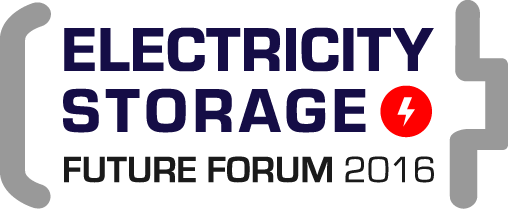Thursday 25 February 2016
The below in-depth learning sessions run concurrently over the full day.
Registration and morning coffee for either session is at 08:30 and both sessions will conclude at 17:00. Lunch, morning and afternoon tea provided.
Choose between In-depth Learning Session A or B:
 In-depth Learning Session A
In-depth Learning Session A
Examining the integration of battery storage and the implications for generators, transmitters, distributors and retailers and practical scenario planning
This practical and interactive session is tailored for professionals in the energy sector who are directly involved in generating, transmitting, distributing and retailing in the energy market. This session will give you the opportunity to examine the changes to the traditional centralised utility model and will give you the opportunity to discuss the changes that storage and other disruptive technologies bring to customer expectations, engagement and participation in the energy sector and the consequent challenges, opportunities and strategies for the industry.
This in-depth learning session will provide you with the opportunity to discuss the emergence of the prosumer, the latest developments in a battery storage technologies, the cost and value proposition for deployment and usage, the impact on energy economics and the regulatory barriers for integration. Restructuring the charges for the use of distribution networks, supporting documentation to provide greater choice and control in how customers use the electricity networks and dealing with customers that send their self-generated electricity back into the grid are the challenges of the future energy market. This session will provide related practical scenario planning tools for key stakeholders.
Key topics and take away skills/benefits:
- Develop strategies to meet changing consumer expectations by implementing a more customer centric retail approach
- Discuss challenges and opportunities of the new prosumer trend
- Learn how to meet the new electricity customer expectations
- Highlight the implications of battery storage for the traditional value chain participants
- Develop better distribution approaches to achieve more transparent structural and operational performances
- Analyse increased customer awareness of power use and price sensitivity and their impact on the traditional utility businesses
- Identify opportunities to transform business models to face the challenges of changing consumer behavior
Facilitator:
 Jim Snow
Jim Snow
Executive Director
Oakley Greenwood
 In-depth Learning Session B
In-depth Learning Session B
Examining the latest developments in battery storage technologies and the implications for the electricity market
This value-packed session is designed for all stakeholders in the electricity market who want to deepen their knowledge of next generation battery technologies and want to gain insights into the latest developments for making storing power more efficient and less costly.
This engaging full day learning session will analyse the latest developments in electricity storage technology and will give attendees insights into the current capabilities of storage technology available in the market, the outlook for further development and an examination of possible timeframes for battery storage to become viable for energy storage.
From here, the session will focus on analysing how the development of distributed storage will impact the length of the energy supply chain and what the new role of the government needs to be in regulating this.
Key topics and take away skills/benefits:
- Examine the latest battery storage developments and how these might impact existing players in the market
- Analyse how quickly battery storage might become commercially viable for residential or commercial use
- Examine what sort of uptake battery storage could have among residential and/ or industrial users and how regulation would need to respond to properly integrate this into the NEM
- Identify opportunities battery storage creates for utilities as well as the threats it may bring
- Gain insights into how solar cars and other battery based innovations may impact the way in which the NEM functions
Facilitator:
 Anthony Vassallo
Anthony Vassallo
Delta Electricity Chair in Sustainable Energy Development
The University of Sydney
